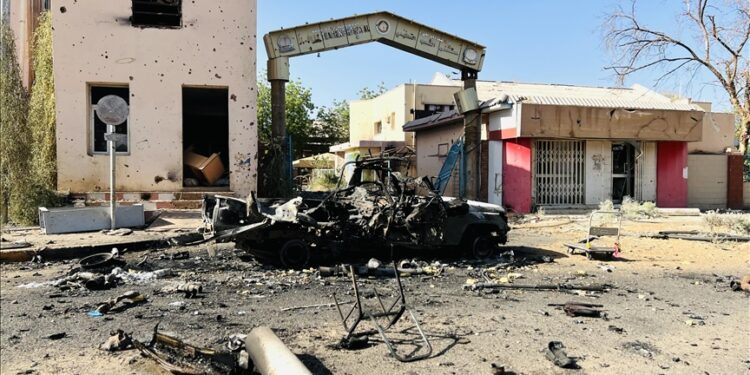GENEVA
The UN refugee agency UNHCR warned on Tuesday that escalating violence in El-Fasher, the capital of Sudan’s North Darfur region, has forced thousands to flee while many others remain trapped amid brutal fighting.
“Reports indicate that the Rapid Support Forces have moved into the city, triggering widespread fear among families who have survived 500 days of relentless siege and conflict,” said Jacqueline Wilma Parlevliet, UNHCR’s head of sub-office in Port Sudan, speaking to reporters in Geneva.
An estimated 26,000 people have fled El-Fasher in recent days, many facing armed checkpoints, extortion, detention, looting, and harassment as they sought safety. Testimonies from those arriving in Tawila, about 50 kilometers away, suggest that an already dire humanitarian crisis is rapidly worsening, according to the agency.
A civil war between the Sudanese army and the paramilitary Rapid Support Forces continues since April 2023. The RSF captured the western city on Sunday.
The UNHCR expressed grave concern over reports of widespread sexual violence against women and girls, as well as summary executions in the city. It urged all parties to protect civilians and guarantee safe passage for those fleeing violence.
Families arriving in Tawila are reported to be malnourished, sick, and traumatized, Parlevliet said, noting that the UNHCR and its partners are providing shelter, essential supplies, and psychological support while preparing additional relief items for delivery once access is secured.
The head of sub-office also warned that similar violence in North Kordofan could lead to another siege, worsening displacement across the region. The UN agency said its 2025 humanitarian appeal for Sudan, the world’s largest displacement crisis, remains only 27% funded.
On Monday, the International Committee of the Red Cross (ICRC) also called for civilians fleeing or remaining in El-Fasher to be spared from harm and granted access to aid.
“For over two and a half years, civilians in El-Fasher have been trapped in a besieged city where they have endured relentless fighting and an extreme deprivation of food, medical care and the essentials for survival,” ICRC President Mirjana Spoljaric said in a statement.
She urged all parties to respect international humanitarian law, ensure safe access for aid workers, and protect hospitals, homes, and critical infrastructure from attack.






